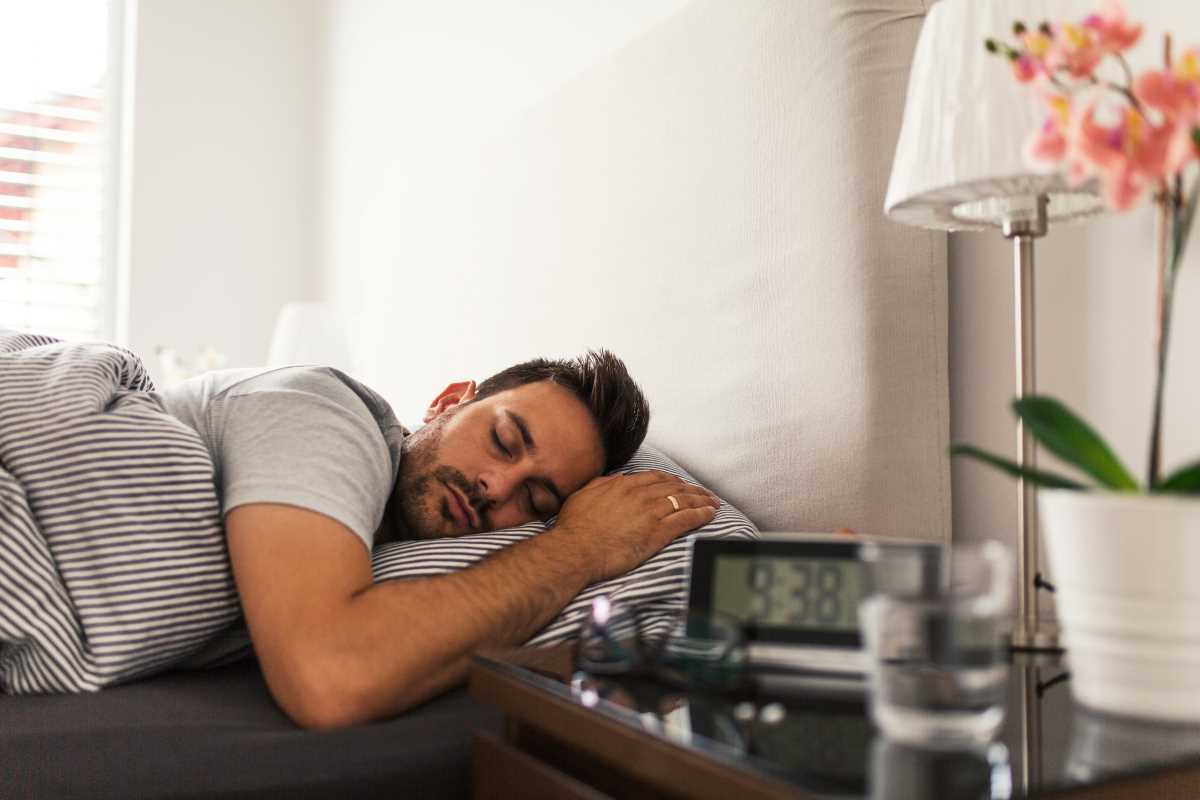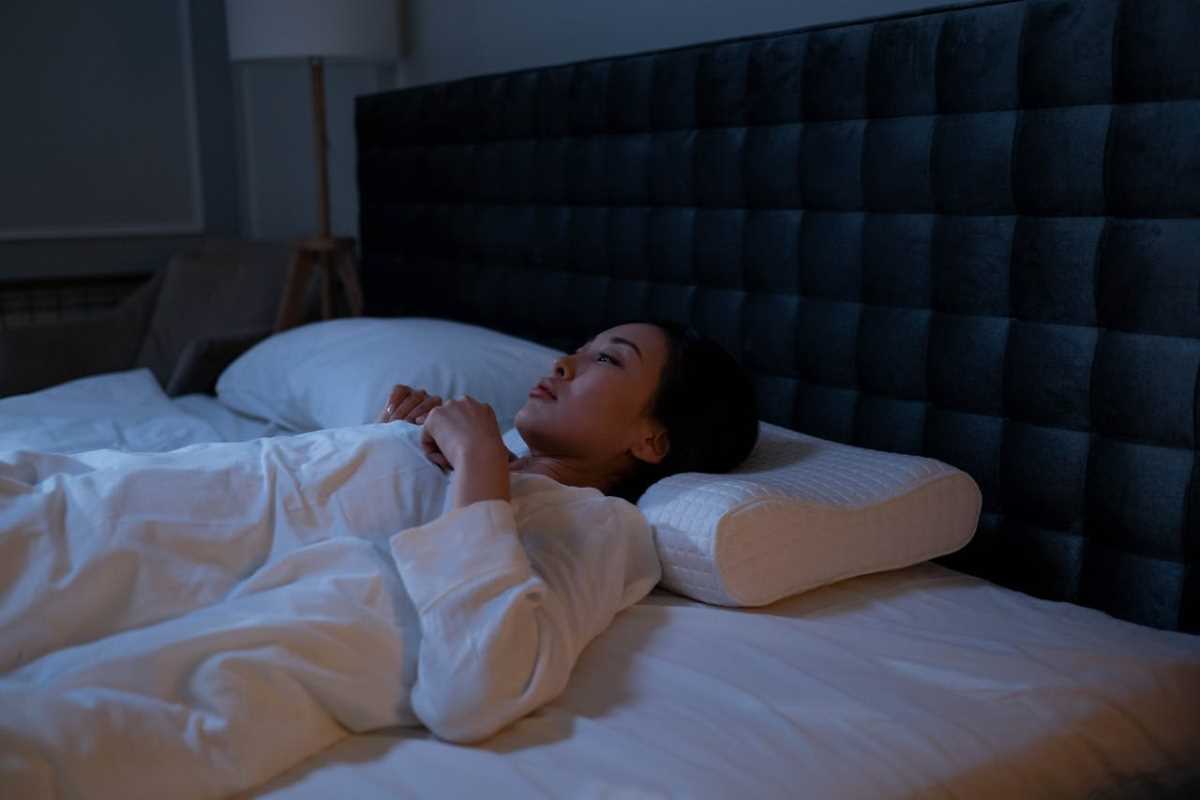Burnout doesn’t clock out when you do. The relentless stress, never-ending to-do lists, and mental exhaustion you face at work don’t just affect your productivity. They follow you home, creating a ripple effect that can wreak havoc on your sleep. If you’ve noticed tossing and turning at night, waking up groggy, or running on fumes by mid-afternoon, burnout could be the culprit.
Here’s how burnout sabotages your sleep health and, more importantly, what you can do to regain control.
1. Stress Hormones Are Hijacking Your Relaxation
Workplace burnout floods your system with stress hormones like cortisol, keeping you wired even when you’re exhausted. Think of it like a smoke detector that won’t stop blaring. It’s designed to keep you alert to threats, but when it’s stuck in overdrive, your body can’t calm down.
When cortisol levels stay elevated, they interfere with the production of melatonin, the hormone responsible for signaling your body that it’s time to sleep. Even if you manage to drift off, high cortisol can lead to fragmented, low-quality sleep, leaving you feeling just as drained in the morning as you felt the night before.
Take Action:
- Try progressive muscle relaxation before bed. Start at your toes and work your way up, tensing and then releasing each muscle group. This signals your body that it’s okay to relax.
- Limit caffeine intake after mid-afternoon. Stimulants can amplify cortisol’s effects and make it harder to wind down.
- Create a stress buffer. Reserve 10–15 minutes before bed for unwinding. Meditate, stretch, or journal; whatever helps you shake off the workday.
2. Overthinking Keeps Your Brain on Night Shift
Burnout often leads to overthinking, as your brain spirals through unresolved work issues, worry about deadlines, or fears of failure. This mental chatter, sometimes called “rumination,” doesn’t just rob you of peace of mind: it directly interferes with your ability to fall asleep.
Picture your brain like a computer running too many programs at once. Instead of shutting down, it overheats. You replay meetings in your head, draft emails to imaginary scenarios, and lie awake thinking about tomorrow’s tasks. Unsurprisingly, this cycle leaves you mentally exhausted but unable to find true rest.
Take Action:
- Write it out. Keep a “worry journal” by your bed. Jot down everything swirling in your head right before sleep. By putting your concerns on paper, you signal to your brain that it doesn’t need to hold onto them.
- Set boundaries with work thoughts. Commit to a “no work talk” rule after 8 PM. Use that time to focus on hobbies, relaxation, or connecting with loved ones.
- Use guided breathing. Close your eyes and practice box breathing (inhale for 4 counts, hold for 4, exhale for 4, hold for 4). This helps calm both your body and your overactive mind.
3. Your Routine is in Disarray
Burnout often pushes healthy routines out the window. Maybe you’re skipping meals, ignoring exercise, working late, or doom-scrolling on your phone to escape the stress. These disruptions pile up, leaving your body clock—or circadian rhythm—completely out of sync.
When your schedule becomes unpredictable, your sleep-wake rhythm suffers. You go to bed too late, struggle to wake up in the morning, or rely on naps to get through the day. Over time, these inconsistent habits make it harder for your body to know when to sleep and when to stay alert, exacerbating both burnout and sleep troubles.
Take Action:
- Set a consistent bedtime and wake-up time, even on weekends. This helps regulate your circadian rhythm and trains your body to feel sleepy at the right time.
- Create a wind-down routine. Dedicate the last 30 minutes of your evening to calming activities in dim lighting: no screens. Read, listen to music, or take a warm shower.
- Limit late-night work. Studies show that exposure to blue light from screens delays melatonin production. If you must work late, use a blue-light filter or glasses.
4. Emotional Exhaustion is Amplifying Anxiety
Burnout leaves you emotionally depleted, making it harder to shake off small annoyances or keep work stress in perspective. This heightened emotional sensitivity often morphs into anxiety, another major sleep disruptor.
Anxiety creates a vicious cycle. You worry about work, lose sleep because of it, and wake up more anxious the next day. Over time, this connection between your emotions and poor sleep deepens, reinforcing both burnout and insomnia.
Take Action:
- Practice gratitude journaling. Before bed, write down three things that went well during the day. Focusing on positives helps shift your mindset away from stress.
- Schedule time for reflection—earlier in the day. If you need to process emotions or vent frustrations, do it in the evening but well before bedtime.
- Try body scans. Lie down and bring your attention to each part of your body in turn. Notice tension and consciously release it.
5. You’re Carrying Work Stress into Bed
When you’re burnt out, it’s hard to leave the mental load of work at the office or even shut your brain off in the comfort of your bedroom. But your bedroom should be a sanctuary, a space where your body and mind associate with rest.
Unfortunately, burnout often turns the bedroom into an extension of your office. You catch up on emails in bed, review presentations from under the covers, or keep your phone blaring with work notifications on the nightstand.
Take Action:
- Draw a hard line between work and rest areas. Keep work devices out of your bedroom entirely. If they are laptops or phones, charge them outside the room.
- Establish an 'end-of-work' ritual. This could be as simple as shutting your laptop, tidying your workspace, or changing clothes. These actions mentally signal the transition from work mode to home mode.
- Make your bedroom a haven for sleep. Use blackout curtains, white noise, and a comfortable mattress to create a space that encourages rest.
By understanding how burnout affects your sleep and implementing strategies like grounding exercises, consistent routines, and work boundaries, you can protect your sleep health and restore balance.
 (Image via
(Image via





